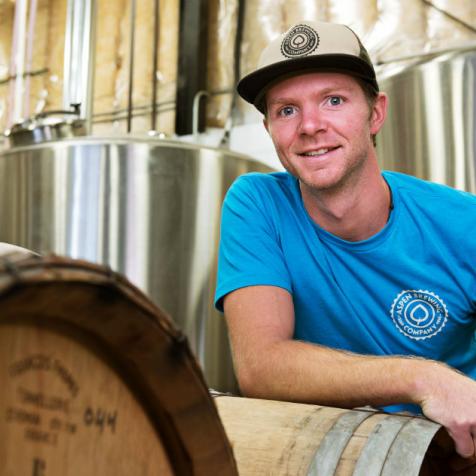
Company Details
Location
Aspen, Colorado
Founded
2008
Ownership Type
Private
Employees
12
Products
Beer
Founder Duncan Clauss is defying the high barriers to manufacturing in Aspen with a long-term vision that emphasizes quality and consistency.
A homebrewer, ski racer, and CU Boulder alumnus, Clauss set the wheels for his brewery in motion during his college days. "I just got wrapped up in the craft beer scene," he says.
Before graduating in 2007, he made up his mind to go into the craft brewing business, and wanted to launch in a ski town. He set his sights on Aspen and the Roaring Fork Valley.

"It was Aspen for a combination of reasons," says Clauss. "Summit County had five craft breweries. Telluride had Smuggler's Brew Pub. There were breweries everywhere except Aspen." Flying Dog Brewery had long since rambled down to Denver before jumping ship for the East Coast, and the nearest brewpub was in Glenwood Springs. "It was a tried, tested, and proven market," says Clauss. "The whole Roaring Fork Valley was essentially untapped."
And there was another reason: "The asterisk was the Aspen name was known around the world."
Pretty soon, Clauss had crafted a business plan and was "losing sleep over" the opportunity. He called Flying Dog founder George Stranahan and other local brewing notables for advice. "I said, 'Can I buy you a beer and pick your brain over it?' I'd ask five questions and they'd give me 50 answers, answers to questions I hadn't even thought of."

Stranahan told him the biggest hurdle to brewing in Aspen was the cost of real estate. "It's hard to build a true manufacturing business in Aspen because it's so expensive," says Clauss. His timing proved fortuitous, however, launching at the outset the Great Recession and moving production to a 7,000-square-foot facility in the Aspen Airport Business Center in 2010, complemented by a taproom in downtown Aspen.
Growth has been dynamic. "It's gone from 500 barrels our first year to more than 5,000 this year," says Clauss, forecasting 7,500 barrels for 2017 and 10,000 for 2018. Distribution spans Colorado and a few East Coast markets -- namely Philadelphia and Washington, D.C. -- as well as the United Kingdom and Australia. "We just shipped our first container to a distributor in London," he says.
About 75 percent of sales is packaged beer. Of five year-round varieties, the top seller is Aspen Brewing's IPA, a.k.a. Independence Pass Ale, which won a gold medal at the 2016 World Beer Cup.

Aspen Brewing also releases four seasonal beer a year and continues to expand its barrel-aged offerings. "That's where we get to unload some creativity and do some cool collaborations," says Clauss, highlighting work with Breckenridge Distillery, Woody Creek Distillers, and Great Divide Brewing Company.
Coming in spring 2017: the third installment of Cougar Sour Aged Blonde Ale, featuring the brewery's signature strains of brettanomyces, lactobacillus, and pediococcus and a helping of organic, Colorado peaches, matured for nine months in a barrel from California's Donelan Family Wines. "Being in Aspen, we had to nickname it the Cougar," laughs Clauss.
Favorite beers: "It's like asking a parent what's your favorite child," says Clauss of his favorite beers from his own brewhouse. "I love our IPA, I love all our beers, but I always lean on our Belgian saison."
Beyond Aspen Brewing, he highlights "the cool stuff going on with sour beers in Colorado," and tips his cap to Crooked Stave Artisan Beer Project and New Belgium's Lips of Faith series.

Challenges: "Real estate is definitely a big one," says Clauss. "It's a moving target." But Clauss has planned ahead: The brewery's current annual capacity is about 12,000 barrels on its 20-barrel brewhouse -- a number he forecasts production will eclipse in 2019, give or take -- and the company has first refusal on adjacent spaces.
Another challenge: "The number of breweries has more than doubled since we opened. Distribution and access to the marketplace has gotten more challenging." While the market has likewise grown, competition for taps and shelf space has gotten increasingly fierce.
Opportunities: "We've been working hard at getting distribution in the main feeder cities to Aspen," says Clauss, noting that United Airlines’ direct flights provided a blueprint: Dallas/Fort Worth, Chicago, New York, Los Angeles, and San Francisco are among the top targets. "We're fortunate the Aspen name can get us some recognition," he adds, "and we're 110 percent committed to making the best beer we can make."
Needs: "Access to distribution in those target markets," says Clauss. "It's an insanely challenging landscape in any of them."
